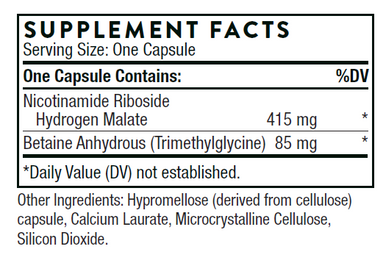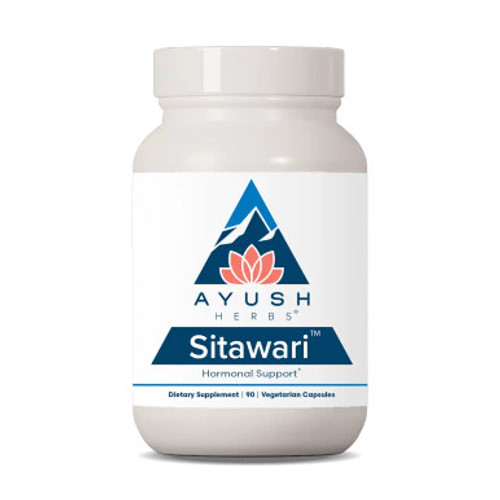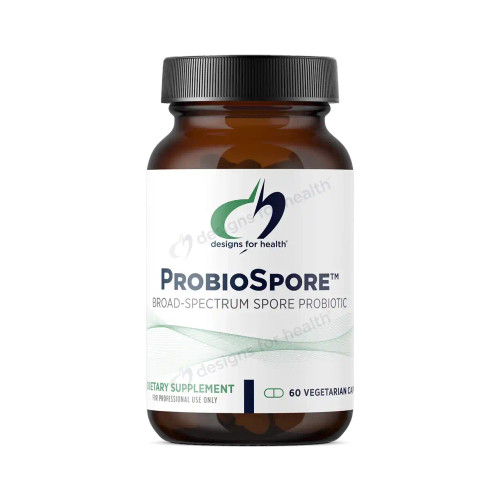Thorne Niacel 400 – Advanced Cellular Energy and NAD+ Support
Thorne Niacel 400 is a high-potency, science-backed supplement designed to optimize cellular health and energy metabolism. This advanced formula combines Nicotinamide Riboside (NR) with Betaine Anhydrous to promote healthy aging by increasing NAD+ levels—key for energy production and DNA repair. Niacel 400 supports fat metabolism, cellular protection, and optimal methylation pathways without the common side effects associated with high-dose niacin.
Thorne Niacel 400 Benefits
- Promotes increased cellular energy through enhanced NAD+ production
- Supports healthy fat metabolism and optimal mitochondrial function
- Aids in DNA repair and protects cells from oxidative stress
- Encourages efficient methylation for cardiovascular and cognitive wellness
- Provides anti-aging support with minimal reported side effects
How Thorne Niacel 400 Works
Thorne Niacel 400 works by delivering Nicotinamide Riboside Hydrogen Malate, a bioavailable precursor to NAD+ (nicotinamide adenine dinucleotide). NAD+ plays a vital role in cellular energy, mitochondrial performance, and DNA repair. As NAD+ naturally declines with age, boosting its levels helps enhance fat metabolism, support healthy aging, and maintain brain and muscle function.
To further support methylation and cardiovascular health, Betaine Anhydrous (Trimethylglycine) is included in the formula. This nutrient helps recycle homocysteine, a byproduct of methylation, ensuring your body can safely and efficiently perform vital detox and energy functions. Niacel 400 has a strong safety profile and avoids the flushing side effects often linked with traditional niacin supplements.
Who Should Use Thorne Niacel 400
- Individuals seeking a safe and effective way to support joint, bone, and skin health
- Those interested in enhancing metabolic efficiency and energy levels
- Adults looking to slow biological aging and protect DNA integrity
- People addressing cardiovascular, cognitive, or inflammatory health concerns through methylation support
Supplements support your health but do not replace a balanced diet. Always check with your healthcare practitioner if you have doubts about a new supplement. Or, you may book a FREE product consultation at Holistic Health Partners. You may want to look at our other Methylation Support or Anti-Inflammation products.
Other Ingredients: Calcium Laurate, Hypromellose Capsule, Microcrystalline Cellulose, Silicon Dioxide
Warning: This product is contraindicated in individuals with a history of hypersensitivity to any of its ingredients.
If pregnant, consult your health professional before using this product.
These statements have not been evaluated by the FDA. This product is not intended to diagnose, treat, cure, or prevent any disease.








